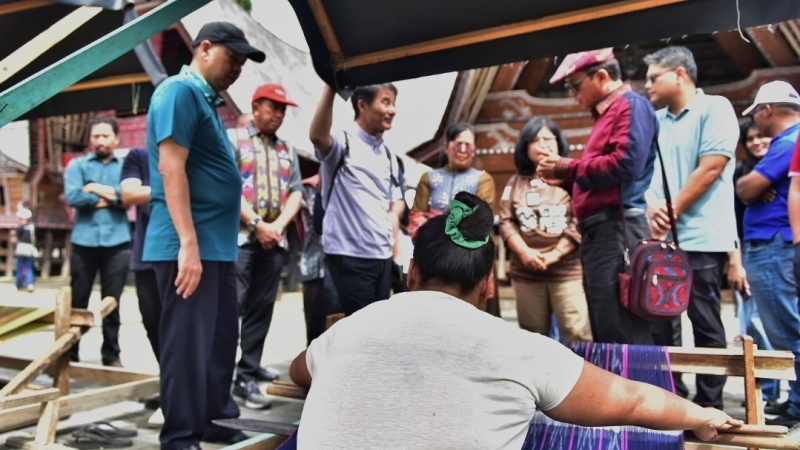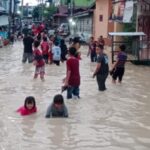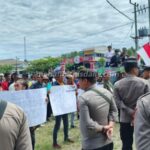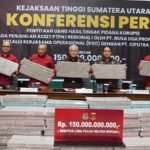The revalidation process for the Toba Caldera Geopark to regain its green card status began today, Monday (July 21, 2025). Two assessors appointed by UNESCO Global Geopark (UGGp), Prof. Jeon Yongmun and Prof. Jose Brilha, arrived this afternoon at Silangit Airport in North Tapanuli to begin the revalidation mission.
After landing at Silangit Airport, they will follow the UNESCO-approved revalidation route to fact-check the fulfillment of self-assessment documents A and B, which were submitted by the Toba Caldera UNESCO Global Geopark Management Agency in late February 2025.
These two documents are mandatory forms that every UGGp member must complete for revalidation of their geopark management.
“In addition to documents A and B, we also submitted appendices for each document, an annual report, and a progress report on fulfilling UNESCO’s recommendations from two years prior. The assessors will verify the evidence from all submitted documents,” said the Manager of the Cooperation, Promotion, and Public Relations Division of the Toba Caldera UGGp Management Agency.
In 2023, the international body issued four recommendations for the Toba Caldera UGGp Management Agency to address. The assessors in this revalidation mission will determine whether these recommendations have been met.
“Our ability to demonstrate progress and convince them that we are seriously managing this geopark in a planned and sustainable manner will determine the assessment by the UNESCO Committee, which will convene in September 2025 in Chile,” they added.
The Management Agency expressed strong optimism that the Toba Caldera Geopark will regain its green card status and maintain its membership in the global network.
This optimism is based on the collective commitment of all stakeholders, particularly the North Sumatra Provincial Government, the seven regencies in the Toba Caldera area, and the central government’s involvement through relevant ministries.
“The attention given by all parties to sustaining the Toba Caldera Geopark’s UNESCO status is significant, even involving high-ranking officials in Jakarta. We believe UNESCO will recognize this as a genuine commitment to improving the management of the Toba Caldera with educational, conservation, and sustainability values within the Sustainable Development Goals framework,” they noted.
In 2023, the UNESCO Committee meeting in Marrakesh, Morocco, issued a yellow card status for the Toba Caldera Geopark.
The yellow card indicates that the management of the Toba Caldera Geopark requires urgent improvements, shortening the revalidation period to two years from the date of the recommendations.
Normally, UGGp revalidation occurs every four years.
The two assessors, Prof. Jeon Yongmun (South Korea) and Prof. Jose Brilha (Portugal), both have backgrounds in geology.
In addition to evaluating scientific aspects, Jose and Jeon will also assess the Toba Caldera Geopark’s management, ensuring it demonstrates understanding, local community involvement, and impact.
“Inclusive management principles for the geopark area are a key sustainability issue. Therefore, education and outreach efforts—such as increased geosite visibility, media publications, and intensive local community engagement—are essential to raise awareness and empower locals as active participants in geopark management. These factors will be closely examined by the assessors,” they explained.
Upon arrival at Silangit Airport, the assessors were greeted by the General Manager of the Toba Caldera UNESCO Global Geopark Management Agency, Azizul Kholis, alongside acting Head of the North Sumatra Development Planning Agency Dikky Anugerah, Tourism Office Head Yudha Pratiwi, and North Tapanuli Tourism Office Head Sasma Hamonangan Situmorang.
To demonstrate commitment, the regents of the Toba Caldera region will take turns hosting the assessors for special dinners over the first three days.
On the final evening, North Sumatra Governor Bobby Nasution will hold a farewell dinner in Medan.
“Before






